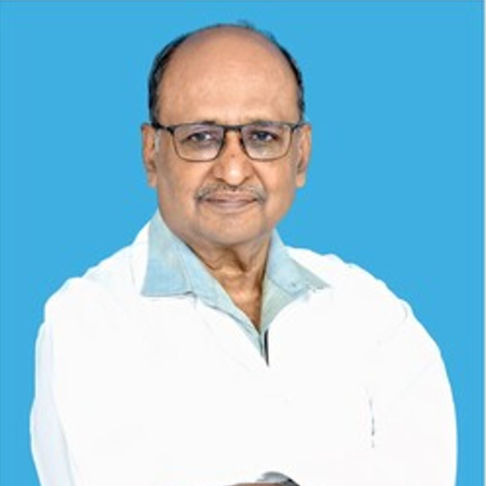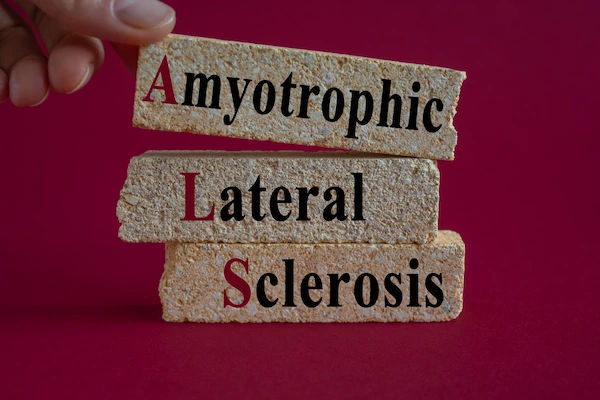Parkinsonism: Overview of Symptoms and Treatment
Discover key information about Parkinsonism, including its symptoms, causes, effects on daily life, and treatment options to help manage movement difficulties and improve quality of life.

Written by Dr. J T Hema Pratima
Reviewed by Dr. Dhankecha Mayank Dineshbhai MBBS
Last updated on 28th Aug, 2025

Introduction
Living with movement difficulties can be challenging, but understanding the condition and knowing how to manage it can make a big difference. Parkinsonism is a term used to describe a group of neurological disorders that share symptoms similar to Parkinson’s disease, such as tremors, stiffness, and slow movement. While Parkinson’s disease is the most common cause, other conditions can also lead to Parkinsonism.
This article will help you understand what Parkinsonism is, common symptoms to watch for, possible causes, how it affects daily life and treatment and lifestyle tips.
Let’s explore this condition in simple terms so you or your loved ones can take the right steps toward better health.
What is Parkinsonism?
Parkinsonism refers to a set of symptoms caused by reduced levels of dopamine, a chemical in the brain that helps control movement. These symptoms include tremors, muscle stiffness, slow movement, and balance problems.
Key Differences Between Parkinsonism and Parkinson’s Disease:
- Parkinson’s Disease (PD): A progressive brain disorder where dopamine-producing cells gradually die.
- Parkinsonism: A broader term that includes PD as well as other conditions (like drug-induced or vascular Parkinsonism) with similar symptoms.
Consult a Neurologist for the best advice
Common Symptoms of Parkinsonism
The symptoms vary from person to person but often include:
1. Motor (Movement-Related) Symptoms
- Tremors (Shaking): Usually starts in the hands, often at rest.
- Bradykinesia (Slowed Movement): Walking, talking, or performing daily tasks becomes slower.
- Muscle Stiffness: Limbs feel rigid, making movement difficult.
- Balance & Posture Issues: Increased risk of falls due to poor balance.
- Shuffling Walk: Small, quick steps while walking.
2. Non-Motor Symptoms
- Speech Changes: Soft, slurred, or monotone speech.
- Sleep Problems: Insomnia or excessive daytime sleepiness.
- Mood Disorders: Depression or anxiety.
- Cognitive Changes: Memory issues or slowed thinking (in later stages).
If you or a loved one experience these symptoms, consulting a neurologist is important for proper diagnosis.
What Causes Parkinsonism?
Several conditions can lead to Parkinsonism, including:
1. Parkinson’s Disease (Most Common Cause)
- Gradual loss of dopamine-producing brain cells.
2. Drug-Induced Parkinsonism
- Certain medications (e.g., antipsychotics, anti-nausea drugs) can temporarily cause symptoms.
3. Vascular Parkinsonism
- Caused by multiple small strokes affecting brain areas controlling movement.
4. Atypical Parkinsonism (Less Common but More Severe)
- Progressive Supranuclear Palsy (PSP) – Affects eye movement and balance.
- Multiple System Atrophy (MSA) – Impacts blood pressure and bladder control.
- Lewy Body Dementia (LBD) – Causes memory loss along with movement problems.
How Parkinsonism Affects Daily Life
Living with Parkinsonism can impact:
- Mobility: Difficulty walking or performing fine motor tasks (buttoning shirts, writing).
- Speech & Swallowing: Soft voice or trouble swallowing food.
- Mental Health: Depression and anxiety due to physical limitations.
- Sleep: Restlessness or frequent waking at night.
However, with proper treatment and lifestyle changes, many people continue to lead fulfilling lives.
Treatment and Management of Parkinsonism
While there’s no cure for most forms of Parkinsonism, treatments can relieve symptoms and improve quality of life.
1. Medications
- Levodopa (Main Treatment): Replaces dopamine in the brain.
- Dopamine Agonists: Mimic dopamine effects (e.g., Pramipexole, Ropinirole).
- MAO-B Inhibitors: Help preserve dopamine (e.g., Selegiline).
- Anticholinergics: Reduce tremors (used in some cases).
Note: Drug-induced Parkinsonism often improves after stopping the medication.
2. Physical & Occupational Therapy
- Exercise (Yoga, Tai Chi, Walking): Helps improve balance and flexibility.
- Speech Therapy: Strengthens voice and swallowing muscles.
3. Lifestyle Changes
- Balanced Diet: High in fibre (to prevent constipation) and antioxidants (berries, nuts).
- Hydration: Helps with muscle function and digestion.
- Mental Stimulation: Puzzles, reading, or social activities to support brain health.
4. Surgical Options (For Advanced Cases)
- Deep Brain Stimulation (DBS): A pacemaker-like device helps control movement.
When to See a Doctor?
If you notice:
- Persistent tremors or stiffness
- Slowed movements
- Frequent falls or balance issues
- Changes in speech or handwriting
Early diagnosis helps in better management. You can consult a neurologist through Apollo 24|7 for expert advice.
Final Thoughts
Parkinsonism can be challenging, but with the right treatment and support, many people manage their symptoms effectively. Staying active, eating well, and following medical advice can make a big difference.
Consult a Neurologist for the best advice
Consult a Neurologist for the best advice

Dr. Meghna Pawar
Neurologist
8 Years • MBBS, MD, DrNB NEUROLOGY
Bhopal
Apollo Sage Hospitals, Bhopal

Dr. Avinash Gupta
Neurologist
12 Years • MBBS, DNB - Neurology
Bilaspur
Apollo Hospitals Seepat Road, Bilaspur
(125+ Patients)

Dr. Aditendraditya Singh Bhati
Neurosurgeon
18 Years • MBBS(2004), DNB Neurosurgery(2014); MNAMS; Fellow Neuroendoscopy
Delhi
Apollo Hospitals Indraprastha, Delhi
(100+ Patients)

Dr.srinivasan Mariappan
Neurologist
20 Years • MBBS, MD, DM (Neuro)
Chennai
Apollo Clinic, Velachery, Chennai

Dr. Amit Kapoor
Neurosurgeon
18 Years • D.N.B NeuroSurg.
Delhi
Apollo Hospitals Indraprastha, Delhi
Consult a Neurologist for the best advice

Dr. Meghna Pawar
Neurologist
8 Years • MBBS, MD, DrNB NEUROLOGY
Bhopal
Apollo Sage Hospitals, Bhopal

Dr. Avinash Gupta
Neurologist
12 Years • MBBS, DNB - Neurology
Bilaspur
Apollo Hospitals Seepat Road, Bilaspur
(125+ Patients)

Dr. Aditendraditya Singh Bhati
Neurosurgeon
18 Years • MBBS(2004), DNB Neurosurgery(2014); MNAMS; Fellow Neuroendoscopy
Delhi
Apollo Hospitals Indraprastha, Delhi
(100+ Patients)

Dr.srinivasan Mariappan
Neurologist
20 Years • MBBS, MD, DM (Neuro)
Chennai
Apollo Clinic, Velachery, Chennai

Dr. Amit Kapoor
Neurosurgeon
18 Years • D.N.B NeuroSurg.
Delhi
Apollo Hospitals Indraprastha, Delhi




